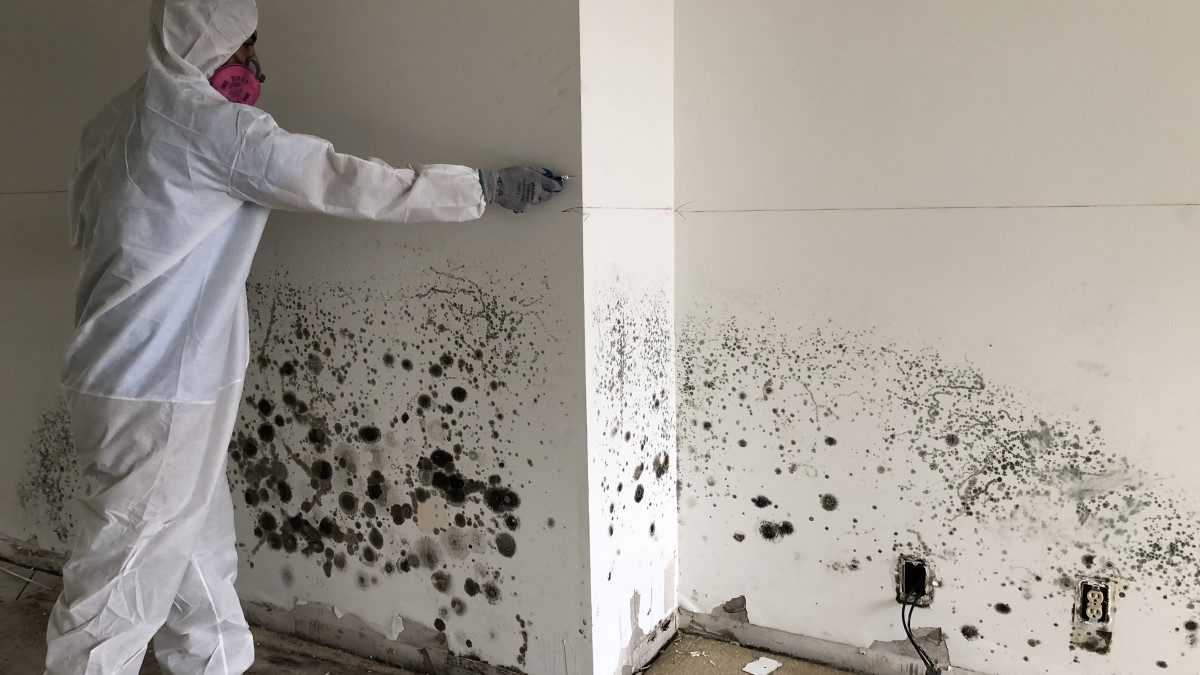How Mold Damage Impacts Emotional Well-Being in Family Environments
Mold damage in the home is a pervasive problem that not only impacts physical health but can also have profound emotional and psychological effects on the individuals living there. In family environments, where relationships are integral to daily life, the stress and anxiety caused by mold contamination can spill over into various aspects of well-being.
Mold thrives in hidden, damp corners of homes, often going unnoticed until it causes significant damage. Once discovered, mold presents not just a physical hazard but a complex psychological burden on families that can impact emotional health, family dynamics, and relationships.
How Does Mold Damage Affect the Mental Health of Family Members?
The presence of mold in a home can be a constant reminder of a hazardous environment. It is not only a potential physical health threat but also a source of emotional stress, especially for families dealing with the day-to-day strain of managing its impact. For many, living with mold introduces a feeling of anxiety, helplessness, and frustration that can undermine their mental health.
- Stress and Anxiety: One of the most immediate psychological impacts of mold damage is increased stress and anxiety. The knowledge that your home is infested with a harmful substance, particularly one that can affect respiratory health, can cause families to constantly worry about their well-being. Parents may be particularly concerned about their children’s health, which can lead to chronic stress. The idea that the home is unsafe can cause anxiety about the potential for mold to worsen or spread, creating a constant state of unease.
- Fear of Health Issues: Mold exposure is linked to various health problems, including respiratory issues, skin irritation, headaches, and fatigue. This association can exacerbate mental health issues, particularly in individuals who are already dealing with pre-existing conditions. Families may feel powerless or frustrated at their inability to control the situation, leading to feelings of fear and helplessness about the future. The more time spent in the contaminated environment, the greater the emotional toll it can take.
- Depression and Low Mood: Living in a mold-infested home can lead to a decline in mood and even depression. The constant worry, coupled with the lack of immediate solutions, can make individuals feel trapped. This, in turn, can lead to feelings of isolation and despair. Families may avoid inviting friends or family over because of the stigma associated with mold and the fear of judgment. Additionally, if mold damage is extensive, it may be challenging to keep up with other household responsibilities, leading to further feelings of frustration and depression.
- Disrupted Sleep Patterns: Mold-related health issues, such as respiratory problems, can result in disturbed sleep. Lack of rest can contribute to irritability, fatigue, and poor decision-making, all of which negatively affect mental health. In family environments, disrupted sleep can escalate conflicts and make it difficult for family members to function optimally during the day. Over time, this lack of rest can contribute to chronic mental health issues.
What are the Psychological Effects of Living in a Home With Mold Damage?
The psychological toll of living in a home with mold damage is often underestimated. Mold infestations are linked to numerous cognitive and emotional issues that can affect both children and adults in the household. These psychological effects are not always immediately apparent but can build over time as exposure to mold persists.
- Cognitive Strain: Prolonged exposure to mold can negatively affect cognitive functioning. Symptoms such as brain fog, difficulty concentrating, and memory problems are commonly reported by individuals who have been exposed to mold for extended periods. These cognitive issues can lead to frustration, self-doubt, and diminished confidence, particularly in children who may already be struggling with academic or developmental challenges.
- Heightened Sensitivity to Environmental Factors: Mold exposure can make family members more sensitive to other environmental stressors. For example, air quality issues, allergens, or even changes in the weather can exacerbate symptoms and mental stress. This heightened sensitivity can create an atmosphere where every small discomfort is magnified, contributing to an overall sense of unease and mental fatigue.
- Fear of Escalating Problems: Many families experience significant psychological distress due to the fear that mold damage will escalate into larger issues, such as structural damage to the home or serious health complications. This anxiety can manifest in an ongoing sense of dread, leading to a constant mental preoccupation with the issue. In families where mold is present, it is not unusual to find that the problem pervades every conversation and interaction, affecting relationships and personal well-being.
- Overwhelming Sense of Helplessness: For families on a budget or those lacking the resources to deal with the mold issue, there is often a sense of helplessness that arises. The inability to fix the problem can be emotionally draining, and it often leads to a sense of personal failure or frustration.
The psychological burden of dealing with mold damage can prevent family members from focusing on other important aspects of their lives, contributing to a downward spiral of emotional well-being.
Can Mold Exposure Contribute to Emotional Stress in Families?
Yes, mold exposure can be a significant source of emotional stress for families, and its effects are often compounded by the challenges of managing a household. From the financial strain of mold remediation to the ongoing health concerns associated with mold exposure, families can feel as though they are constantly battling an invisible enemy. The emotional stress that mold creates can interfere with daily routines and impact family relationships in profound ways.
- Financial Stress: Mold remediation can be an expensive process, and many families struggle to afford the necessary repairs and treatments. The cost of professional mold removal, testing, and repairs can place a significant financial burden on families, contributing to stress and anxiety. The longer mold is left untreated, the higher the potential costs become, leading to even more stress. Families may feel trapped in an ongoing financial cycle, which impacts their emotional well-being.
- Loss of Control: Families often feel a loss of control when they are unable to prevent or eliminate mold damage. This lack of control can cause frustration and exacerbate existing stress. In some cases, mold damage may be linked to natural factors, such as flooding or high humidity, further compounding the emotional strain. The inability to control the situation can lead to feelings of powerlessness, which can affect both individual family members and the family unit as a whole.
- Social Isolation: Families living in homes with mold damage may feel socially isolated. The stigma surrounding mold contamination can make families hesitant to invite guests over or even discuss the issue with others. The physical presence of mold can create a sense of shame, leading to self-imposed isolation. This social withdrawal can increase feelings of loneliness, particularly for parents or caregivers who may already feel overwhelmed by the responsibilities of dealing with mold damage.
- Increased Family Conflict: Emotional stress related to mold exposure can strain family relationships. The constant worry, coupled with the challenges of managing health concerns and finances, can lead to arguments and tension between family members. Parents may become more irritable, children may act out, and siblings may experience conflict as the mold issue looms over them.
The emotional burden of dealing with mold can create a tense and frustrating atmosphere within the home, undermining family dynamics and well-being.
How Does Mold Damage Influence Family Dynamics and Relationships?
Family dynamics are inherently sensitive to stress, and mold damage can exacerbate pre-existing tensions, contribute to new conflicts, and alter how family members interact with one another. The strain of dealing with mold damage can create lasting emotional scars, affecting relationships in the home.
- Increased Caregiver Stress: In households where parents or caregivers are responsible for managing the mold problem, the emotional toll can be particularly significant. Caregivers may feel an increased sense of responsibility to protect their children and ensure their safety, leading to burnout and emotional exhaustion. The pressure to resolve the issue can leave caregivers feeling unsupported, particularly if they are managing the problem alone.
- Communication Breakdown: The constant stress and anxiety caused by mold damage can lead to a breakdown in communication within the family. Family members may withdraw from one another, internalizing their worries rather than discussing them openly. This lack of communication can lead to misunderstandings, resentment, and a further deterioration of relationships.
- Impact on Parenting: Mold damage can affect a parent’s ability to provide a stable and nurturing environment. The stress of dealing with a mold issue can make it difficult for parents to maintain their emotional stability, which in turn can affect their ability to care for and support their children.
Children may experience this shift in parental behavior as a lack of support or attention, which can affect their emotional development and create long-term relationship issues.
- Resentment and Frustration: Over time, the emotional burden of dealing with mold damage can lead to feelings of resentment and frustration within families. If one family member is perceived to be less proactive or supportive in addressing the issue, it can create tension. Additionally, the inability to fix the problem may lead to a sense of collective frustration, particularly if family members feel as though their efforts are not enough.
Mold damage is more than just a physical issue—it is a deeply emotional one that can affect the mental health, well-being, and dynamics of families. The psychological toll of living in a mold-infested home can lead to stress, anxiety, depression, and strained relationships. Families must not only address the physical aspects of mold damage but also take into account its emotional and psychological impact.
By acknowledging the mental health effects of mold exposure, families can begin to heal and seek the necessary support to restore their homes and their well-being.
Take Control of Your Home’s Health: Address Mold Damage Before It Affects Your Family
If your home is dealing with mold damage, it’s time to act before the emotional and physical toll becomes overwhelming. At United Water Restoration Group of Charlotte, we understand the impact mold can have on your family’s well-being. Our expert team is here to help you identify, treat, and remove mold safely, restoring not just your home, but also peace of mind for you and your loved ones.
Don’t wait until the problem escalates—contact us today to schedule a thorough inspection and take the first step toward a healthier, happier home. Your family deserves it.












Share On: